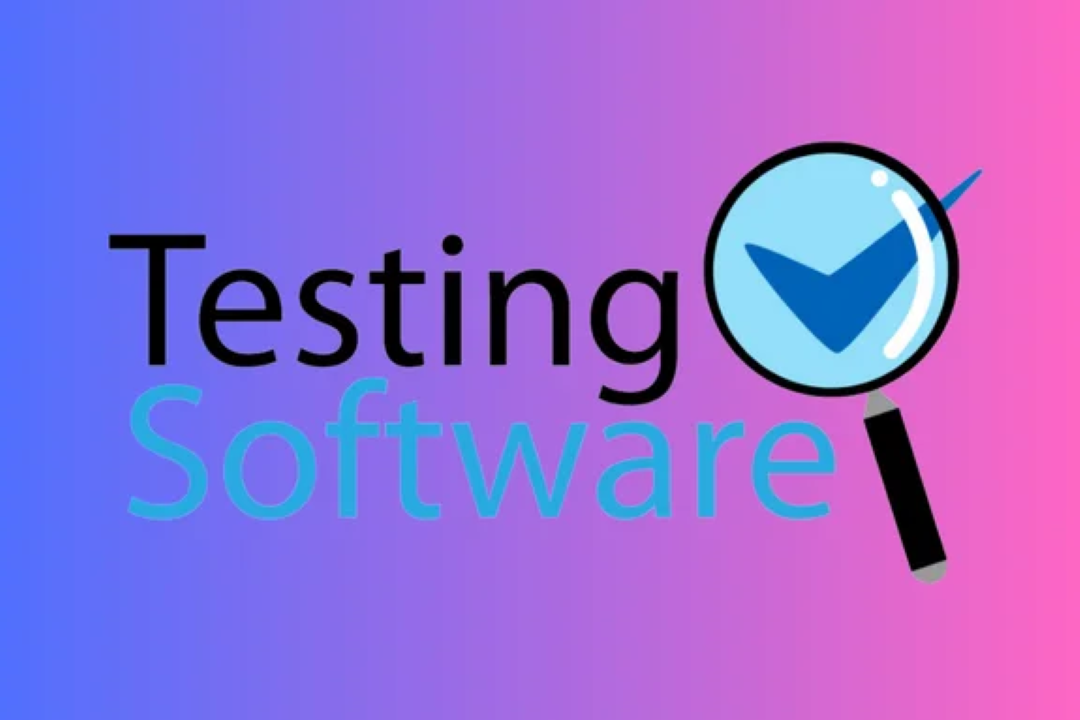Selenium Course In Pune Hinjewadi
The Selenium Automation Testing Course in Hinjewadi, Pune, is an immersive training program aimed at
Selenium Course In Pune Hinjewadi
The Selenium Automation Testing Course in Hinjewadi, Pune, is designed to empower professionals and aspiring testers with the skills needed to excel in the software testing industry. As one of the most widely-used frameworks for automating web applications, Selenium helps streamline the testing process, reduce manual effort, and enhance accuracy in delivering high-quality software. This course offers practical exposure through real-time projects, ensuring participants not only learn the theoretical aspects but also gain hands-on experience in creating and executing test scripts. With the increasing demand for skilled automation testers in the tech-savvy environment of Pune, enrolling in this course paves the way for career advancement and greater job opportunities in software quality assurance.
To Download Our Brochure: https://www.justacademy.co/download-brochure-for-free
Message us for more information: +91 9987184296
The Selenium Automation Testing Course in Hinjewadi, Pune, is designed to empower professionals and aspiring testers with the skills needed to excel in the software testing industry. As one of the most widely used frameworks for automating web applications, Selenium helps streamline the testing process, reduce manual effort, and enhance accuracy in delivering high quality software. This course offers practical exposure through real time projects, ensuring participants not only learn the theoretical aspects but also gain hands on experience in creating and executing test scripts. With the increasing demand for skilled automation testers in the tech savvy environment of Pune, enrolling in this course paves the way for career advancement and greater job opportunities in software quality assurance.
Course Overview
The Selenium Course in Pune Hinjewadi is a comprehensive training program designed to equip participants with the essential skills and knowledge required for effective automation testing using Selenium. This course covers the foundational concepts of software testing, advanced Selenium features, and best practices for writing robust test scripts. With a focus on practical application, learners will engage in real-time projects that simulate industry scenarios, enhancing their problem-solving skills and readiness for the workforce. Additionally, the course offers insights into integration with other testing tools and frameworks, preparing participants for the dynamic demands of the software testing landscape. By the end of the course, students will be proficient in Selenium and confident in their ability to contribute to quality assurance processes in an agile environment.
Course Description
The Selenium Course in Pune Hinjewadi offers a thorough exploration of automation testing, focusing on Selenium as a powerful tool for web application testing. Participants will learn the fundamentals of software testing, the intricacies of Selenium WebDriver, and advanced techniques for creating effective test cases. The course emphasizes hands-on experience through real-time projects, allowing learners to apply their skills in practical scenarios. Additionally, students will gain insights into best practices for test automation, integration with frameworks like TestNG and Maven, and strategies for maintaining test scripts. This course is ideal for aspiring testers and professionals seeking to enhance their automation skills and excel in the competitive tech landscape.
Key Features
1 - Comprehensive Tool Coverage: Provides hands-on training with a range of industry-standard testing tools, including Selenium, JIRA, LoadRunner, and TestRail.
2) Practical Exercises: Features real-world exercises and case studies to apply tools in various testing scenarios.
3) Interactive Learning: Includes interactive sessions with industry experts for personalized feedback and guidance.
4) Detailed Tutorials: Offers extensive tutorials and documentation on tool functionalities and best practices.
5) Advanced Techniques: Covers both fundamental and advanced techniques for using testing tools effectively.
6) Data Visualization: Integrates tools for visualizing test metrics and results, enhancing data interpretation and decision-making.
7) Tool Integration: Teaches how to integrate testing tools into the software development lifecycle for streamlined workflows.
8) Project-Based Learning: Focuses on project-based learning to build practical skills and create a portfolio of completed tasks.
9) Career Support: Provides resources and support for applying learned skills to real-world job scenarios, including resume building and interview preparation.
10) Up-to-Date Content: Ensures that course materials reflect the latest industry standards and tool updates.
Benefits of taking our course
Functional Tools
1 - Selenium WebDriver: Selenium WebDriver is the core component of the Selenium suite that enables automation of web applications across various browsers. It provides a programming interface to create test scripts in multiple programming languages such as Java, C#, Python, and Ruby. Participants will learn how to interact with web elements, manage sessions, and create robust test cases using WebDriver, thereby gaining practical skills to handle web application testing effectively.
2) Selenium IDE: Selenium Integrated Development Environment (IDE) is a user friendly interface that allows users to record, edit, and debug test cases without extensive programming knowledge. This tool is perfect for beginners as it enables them to understand the basics of test automation quickly. In the JustAcademy course, students will work on creating simple test scripts using Selenium IDE, learning the fundamentals of automation testing while also exploring its limitations and advantages.
3) TestNG: TestNG is a popular testing framework designed for test automation in Java. It offers advanced features for parallel test execution, data driven testing, and easy test configuration. Participants will explore how to integrate TestNG with Selenium to create structured test cases and generate comprehensive reports. This understanding is critical for organizing test suites and executing tests efficiently, enabling students to adhere to best practices in automation testing.
4) Maven: Maven is a build automation tool used primarily for Java projects. It simplifies the process of managing project dependencies and automating build processes. In the Selenium course, students will learn how to set up Selenium with Maven, ensuring that all necessary libraries are integrated seamlessly for their testing projects. This knowledge helps streamline the testing workflow, essential for maintaining large test suites and collaborating in a team environment.
5) Cucumber: Cucumber is a testing tool that supports Behavior Driven Development (BDD). It allows the creation of human readable test cases using Gherkin language, making it easier for both technical and non technical stakeholders to understand. In the training program, students will learn how to write feature files and step definitions, integrating them with Selenium to automate acceptance tests. This approach fosters better communication among teams and enhances the overall quality of software development.
6) Jenkins: Jenkins is a widely used open source automation server that facilitates continuous integration and delivery (CI/CD). In the course, participants will discover how to configure Jenkins with Selenium to automate testing processes and integrate them into the CI/CD pipeline. This skill is invaluable as it helps students understand how automated testing fits into the broader context of software development and deployment, ensuring that applications are continuously tested and delivered efficiently.
7) Postman: Postman is a popular tool for API testing that simplifies the process of sending requests and analyzing responses. While the primary focus of the course is on web application testing, understanding API testing with Postman complements Selenium skills by providing insights into how front end applications communicate with back end services. Participants will learn to create and run API tests, which is essential for validating the entire application’s functionality.
8) Apache POI: Apache POI is a Java library that allows reading and writing Microsoft Excel files. In the course, students will learn to integrate Apache POI with Selenium for data driven testing, where test cases can be executed with various sets of inputs stored in Excel files. This skill enhances the ability to create flexible and maintainable test scenarios, allowing testers to improve efficiency during functional testing.
9) Allure Reports: Allure is a flexible reporting tool that provides clear and informative reports for test results. In the Selenium training program, students will learn how to generate Allure reports to visualize their test execution results comprehensively. This knowledge is vital for assessing test outcomes, identifying failures, and communicating results to stakeholders effectively, ensuring that the quality of the software is communicated clearly and quantitatively.
10) Git: Git is a version control system that allows teams to work collaboratively on software projects. In this course, students will understand the importance of version control and how to use Git to manage their Selenium projects. They will learn about branching, merging, and tracking changes, which is fundamental for collaboration in automation testing and ensures that different team members can work on the same codebase without conflict, maintaining an organized workflow.
11 - Loading and Handling Different Web Elements: Understanding how to interact with various web elements, such as buttons, text fields, dropdowns, and checkboxes, is crucial for automation testing. Students will learn techniques to locate these elements using different strategies, such as ID, class name, XPath, and CSS selectors. Mastering these skills will enable participants to create adaptable and reliable test scripts suited for any web application.
12) Handling Alerts, Frames, and Windows: Real world web applications often involve alerts, frames, and multiple browser windows. The course will cover strategies for handling these situations effectively. Participants will explore how to switch between frames, manage browser windows, and interact with JavaScript alerts, ensuring they are equipped to test complex web scenarios.
13) Synchronization – Implicit and Explicit Waits: Proper synchronization is critical in automated testing to deal with dynamic web elements. The course will introduce students to implicit and explicit waits, teaching them how to effectively manage the timing of their test scripts to ensure that actions are performed only when elements are present or interactable. This understanding minimizes flaky tests and improves reliability.
14) Page Object Model (POM): The Page Object Model is a design pattern that helps in creating an object repository for web UI elements. By structuring tests with POM, students will learn how to separate test scripts from the underlying code, enhancing maintainability and readability. This architectural pattern is essential for large scale testing and promotes best practices in test automation.
15) Data Driven Testing: Participants will discover how to implement data driven testing using different sources, such as CSV files, Excel sheets, or databases, in conjunction with Selenium. This approach allows the same test case to be executed with multiple sets of data, leading to efficient testing and increased coverage of user scenarios.
16) Cross Browser Testing: Understanding how to test applications across different browsers is vital for ensuring compatibility. The JustAcademy course will cover techniques for setting up and executing tests on multiple browsers, teaching students how to handle browser specific issues and ensure consistent application behavior.
17) Error Handling and Logging: Effective error handling and logging mechanisms are crucial for debugging automated tests. The course will introduce strategies for implementing try catch blocks, logging test activity, and capturing screenshots on test failures. This knowledge will help participants diagnose issues swiftly and enhance the reliability of their test automation frameworks.
18) Mobile Testing with Selenium: With the rise of mobile applications, understanding how to use Selenium for mobile testing is increasingly important. The course will address mobile testing fundamentals and explore how to set up Selenium for testing mobile web applications, preparing students to adapt their skills to mobile platforms.
19) Version Updates and Framework Maintenance: As software and testing frameworks evolve, it is essential for testers to keep their skills updated. This part of the training will focus on how to manage Selenium and associated frameworks’ versions effectively, ensuring students know how to incorporate new features and updates into their testing practices.
20) Integration with Other Tools: The course will explore how to integrate Selenium with other testing tools and frameworks, such as Appium for mobile testing, RestAssured for API testing, and various reporting and CI/CD tools like Jenkins, CircleCI, or Travis CI. This knowledge will enhance participants' ability to create comprehensive testing ecosystems.
21 - Performance Testing Basics: While the primary focus is on functional testing, basic concepts of performance testing will be introduced. Participants will learn how to identify performance bottlenecks and integrate performance testing into their automation strategy, ensuring that applications not only function correctly but also perform well under load.
22) Building Robust Test Cases: This segment will focus on creating robust and reusable test cases that are easy to maintain and can accommodate future changes in the application. Students will learn best practices for designing test cases that improve accuracy and reduce maintenance efforts over time.
23) CI/CD Integration for Selenium Tests: Continuous Integration and Continuous Delivery (CI/CD) are key in modern software development. The course will cover how to set up Selenium tests within CI/CD pipelines, allowing participants to understand how tests can be automatically triggered with each code change, thus enhancing the overall quality assurance process.
24) Best Practices in Automation Testing: Finally, the course will highlight best practices in automation testing, including code reviews, establishing code standards, and maintaining a clear documentation practice. This comprehensive understanding will prepare participants to be effective automation testers in collaborative and fast paced development environments.
25) Capstone Project: To consolidate the learning experience, students will work on a capstone project that encompasses all aspects of what they have learned. This project will require them to develop a complete test automation suite for a sample web application, showcasing their skills in using Selenium, designing test cases, and integrating with different tools and frameworks. This hands on experience is invaluable in preparing students for real world challenges.
Browse our course links : https://www.justacademy.co/all-courses
To Join our FREE DEMO Session:
This information is sourced from JustAcademy
Contact Info:
Roshan Chaturvedi
Message us on Whatsapp: +91 9987184296
Email id: info@justacademy.co
APPium android ios book buy online












